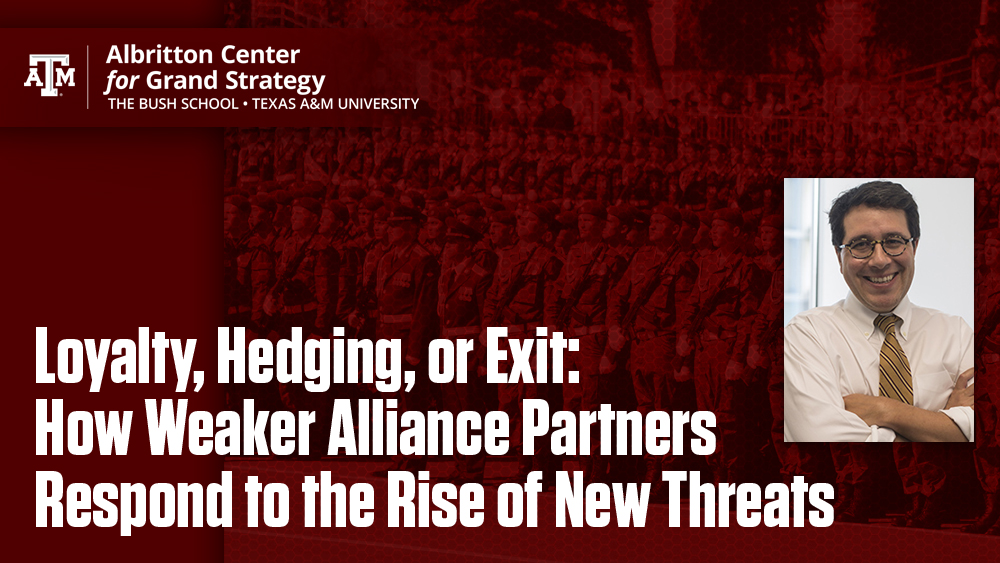
Dr. Jasen Castillo, Associate Professor in the Department of International Affairs at the Bush School and co-director of the Albritton Center for Grand Strategy, coauthored “Loyalty, Hedging, or Exit: How Weaker Alliance Partners Respond to the Rise of New Threats” with Alexander B. Downes in the Journal of Strategic Studies. The article explores how weaker partners allied with great powers choose among loyalty (remaining allied to their great power patrons), hedging (improving political relations with the challenger or – in the nuclear age – pursuing nuclear weapons), and exit (leaving the alliance by declaring neutrality or defecting to the rising challenger) when new threats arise.
Castillo and Downes argue that, in general, as protégés come to doubt the ability or willingness of patrons to defend them, they are likely to shift away from loyalty and towards exit. Where they end up on this alliance spectrum, however, depends on additional factors identified in the article, including signals of commitment from patrons and the territorial claims of challengers against protégés. The authors illustrate their argument and these conditions in three cases from interwar and early Cold War Europe and draw implications for US alliances today.

